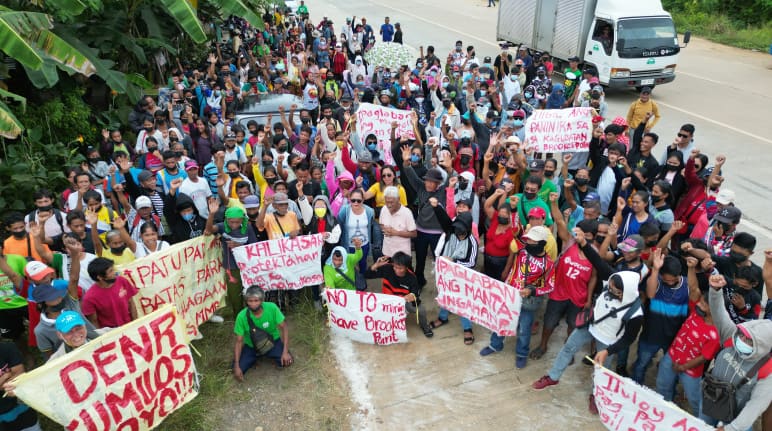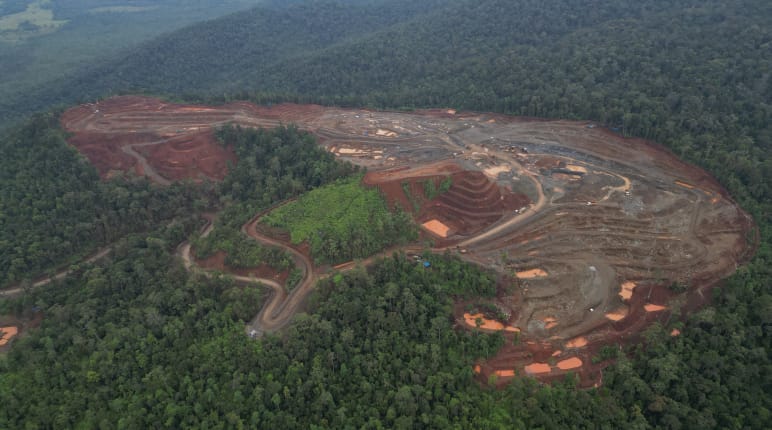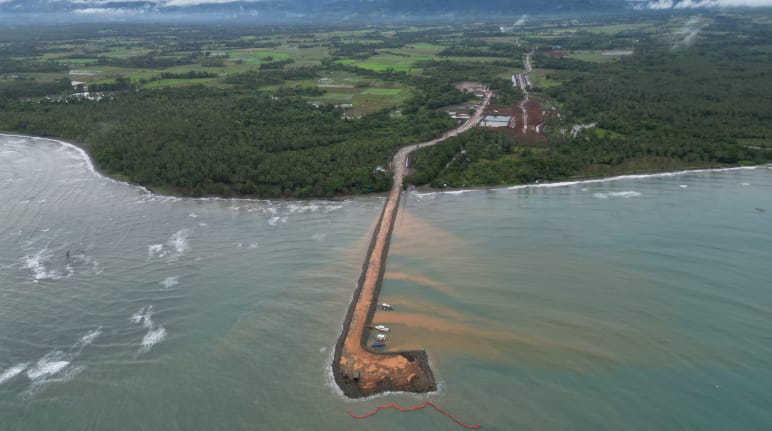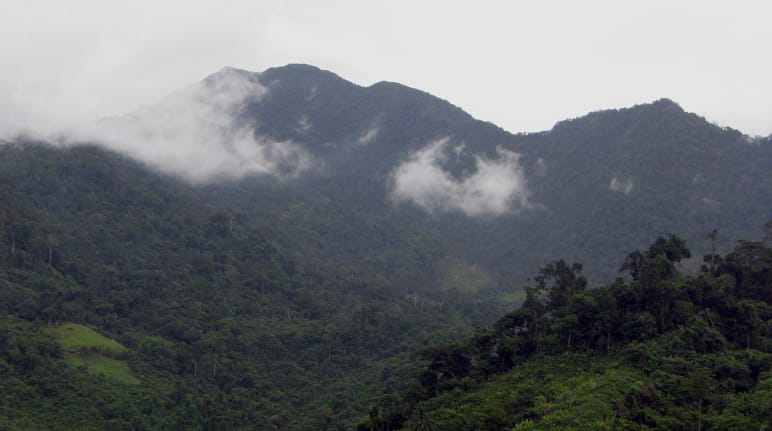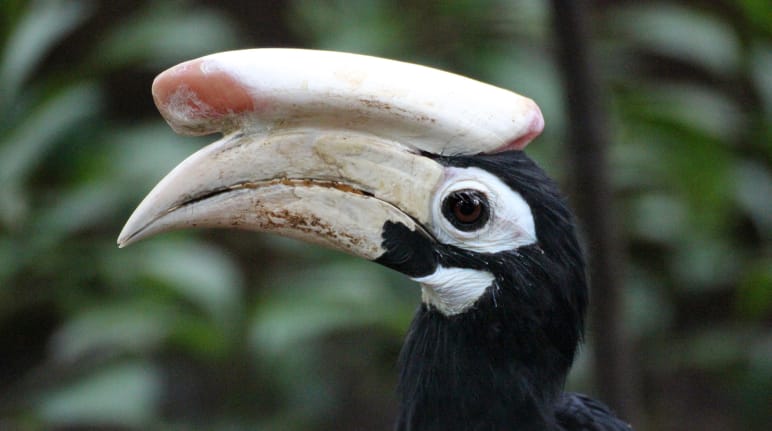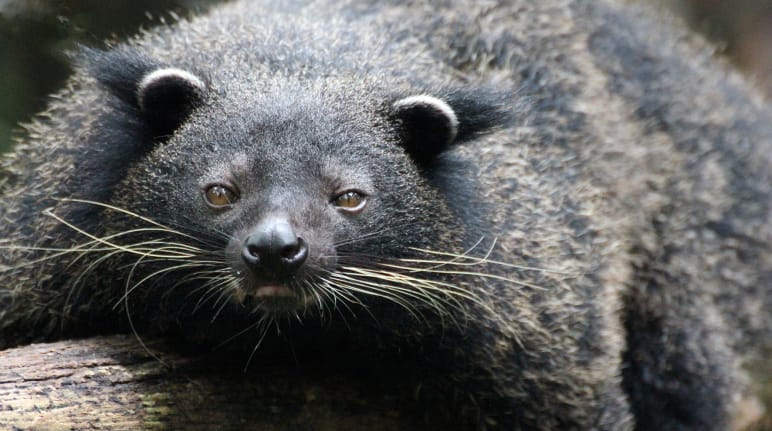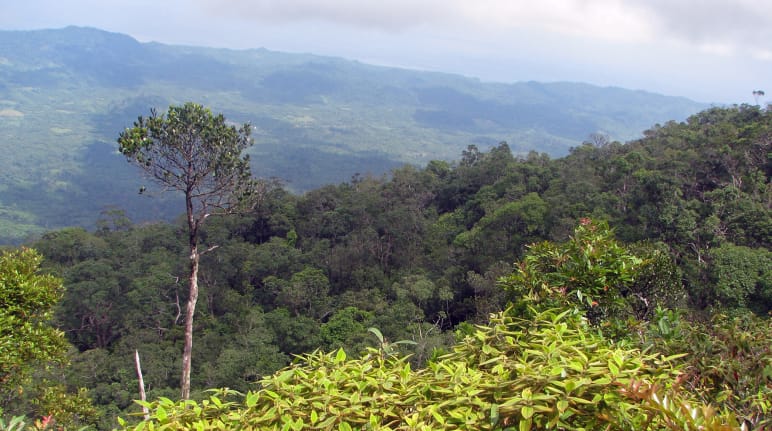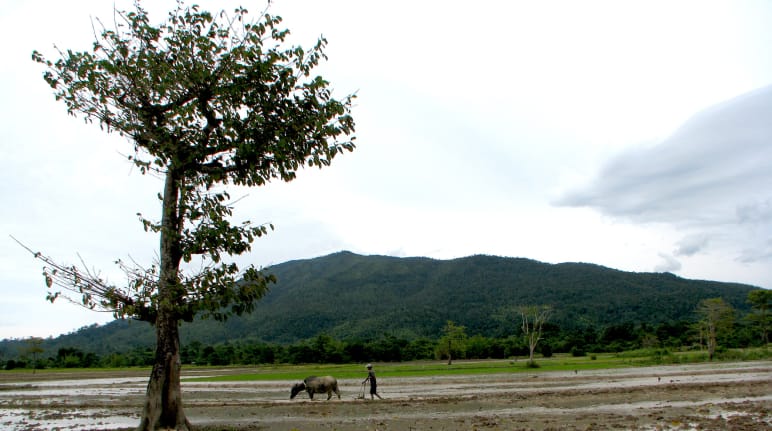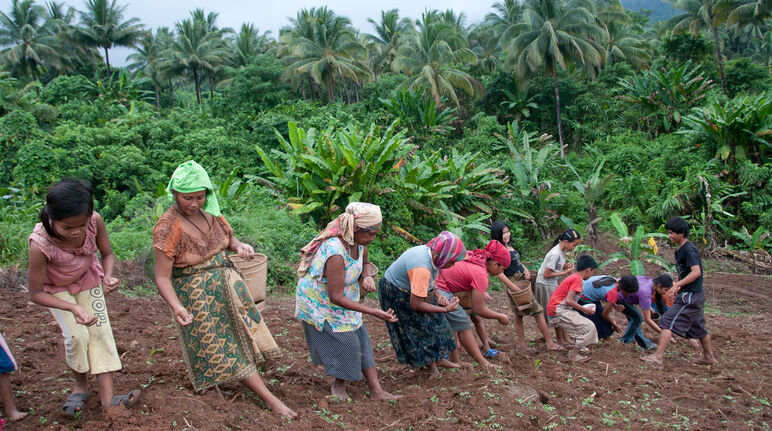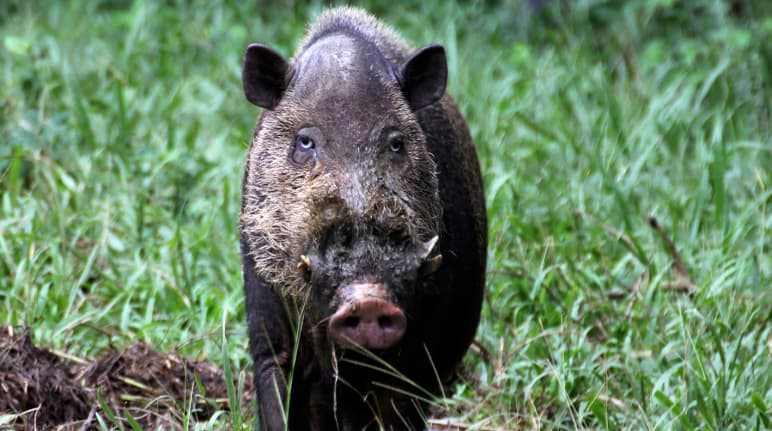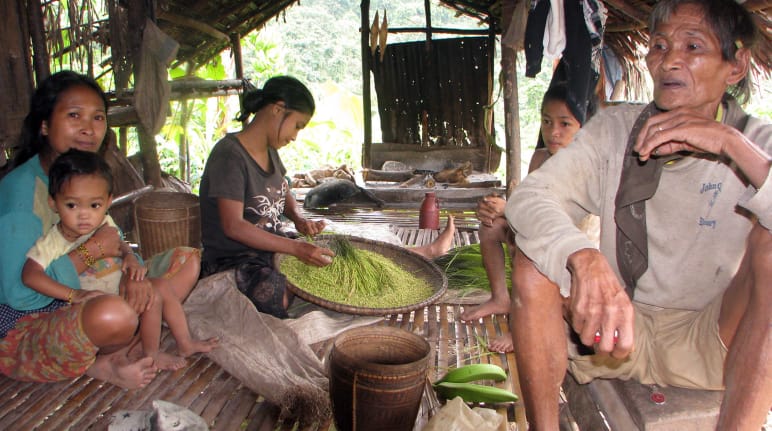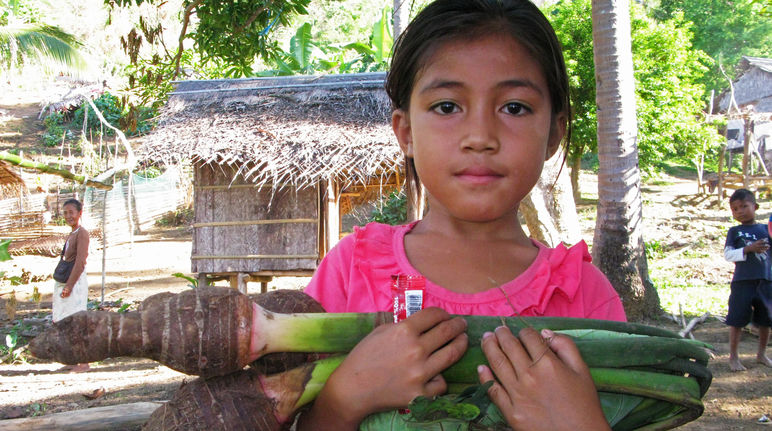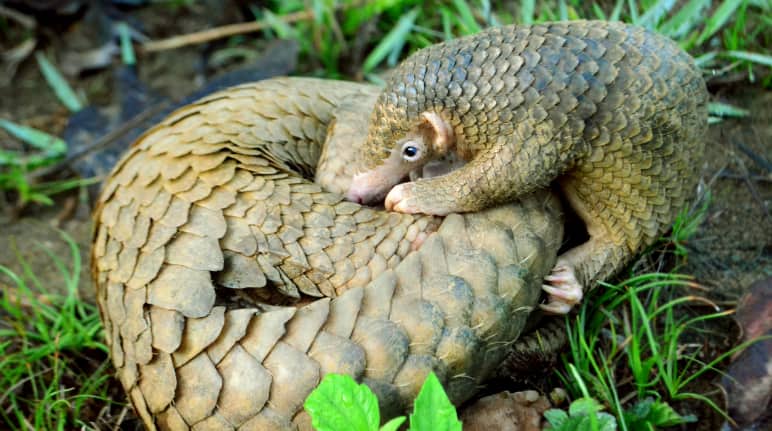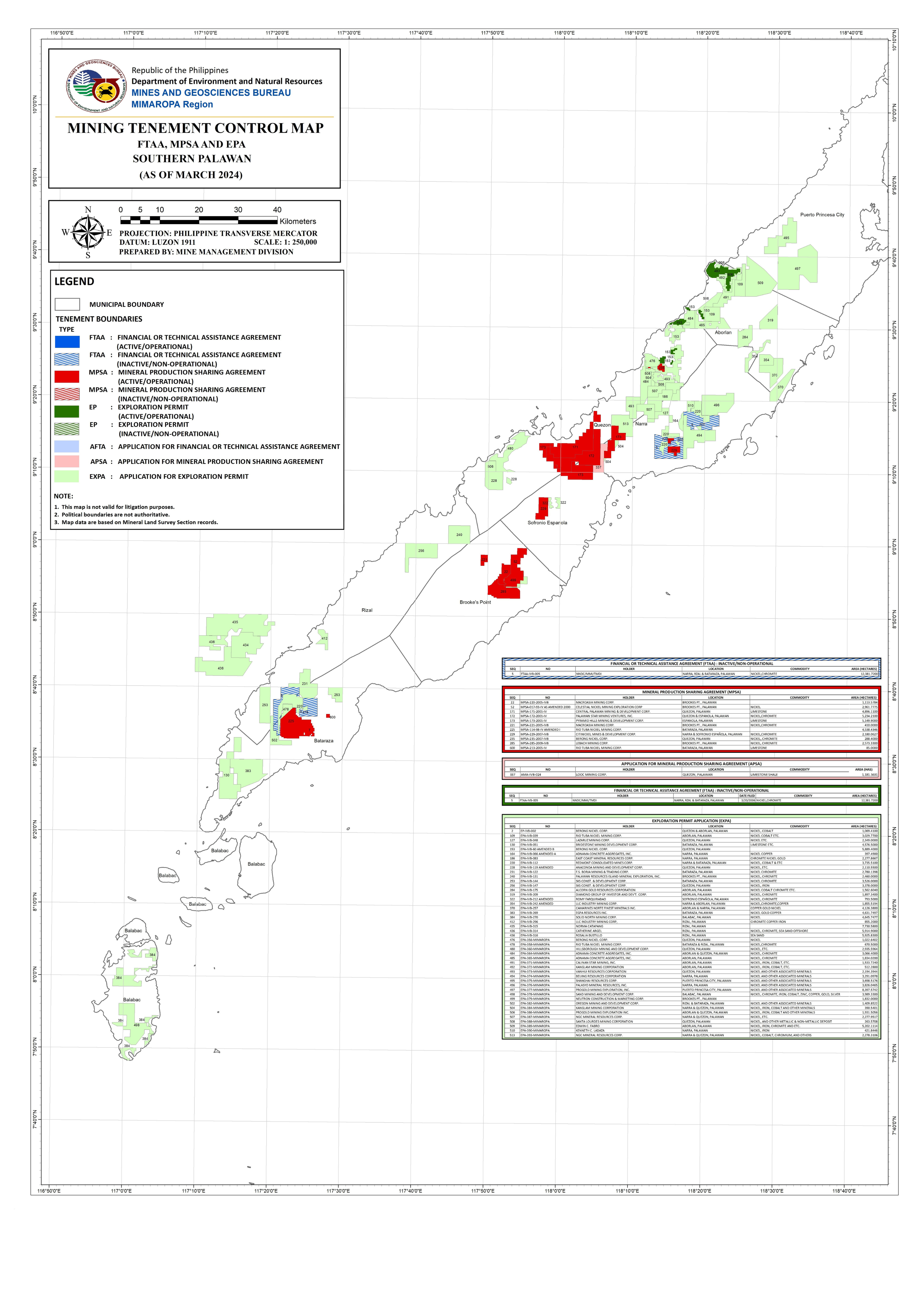Philippines: Help us save Palawan’s forests!
The island of Palawan is a UNESCO Man and Biosphere Reserve – an internationally recognized ecological and cultural treasure. But now the Philippine government is opening vast areas of rich biodiversity and Indigenous land to mining. Please sign our petition and help preserve one of the last true slices of paradise in the Philippines!
News and updates Call to actionTo: President of the Republic of the Philippines; Secretary of the Department of Environment and Natural Resources; Governor of the Province of Palawan; Chairperson of the National Commission on Indigenous Peoples (NCIP); UNESCO General Director and others
“UNESCO must raise the issue of mining on Palawan Island with the Philippine government. Mining has no place in a Man and Biosphere Reserve!”
Palawan is known as the “last frontier” of the Philippines. In 1990, the entire island was declared a Man and Biosphere Reserve by UNESCO. This unique natural paradise has been sustainably managed by the local Indigenous peoples such as the Batak, the Pala’wan and Tagbanua since time immemorial.
The island has been referred to as the cradle of Philippine civilization due to the remarkable archaeological discoveries made there. Palawan is also home to some of the oldest trees in the Northern Hemisphere and is the habitat of more than 200 endemic species and more than 100 endangered species.
However, the Philippine government’s push to promote mining violates the conditions for which the prestigious UNESCO award was granted.
The global transition to a low-carbon future, and the resulting international demand for minerals such as nickel, copper and lithium to manufacture electric vehicles and storage technology for renewable energy, is casting a dark shadow over the future of Palawan and tropical forests around the world.
Currently, eleven companies have been granted mining rights by the national government for a total of 29,430 hectares in Palawan. To date, mining activities on the island have resulted in deforestation, soil erosion, water pollution, habitat fragmentation, and the destruction of tribal sacred sites and places of worship, undermining the very natural resources upon which Indigenous communities, farmers and fisherfolk depend for their livelihoods.
It is therefore imperative that existing mining operations not be expanded and new mining applications not be processed and entertained by the government under any circumstances. Mining in Palawan must stop NOW!
Start of petition: 31/05/2024
BackgroundHome to some of the oldest trees in the Northern Hemisphere, Palawan has more than 200 endemic species and more than 100 endangered species, several of which are on the IUCN Red List. Based on the IUCN classification, the island is home to 105 of the 475 threatened species in the Philippines. Of the 105 threatened species, 67 are endemic to the Philippines, while 42 of the 67 Philippine endemics are endemic to Palawan. It has the highest remaining mangrove cover in the country. Palawan also has the highest number (6) of protected areas in the Philippines. Two of them are the World Heritage Sites of the Puerto Princesa Subterranean River National Park (PPSRNP) and the Tubbataha Reefs Natural Park (TRNP).
Protected areas and logging ban through several laws
Due to the island's distinctive biogeographic character, rich endemism and biodiversity, a special law called the Strategic Environmental Plan for Palawan (SEP) was enacted and implemented in 1992 with significant funding from the European Union. The SEP law (RA 7611) provides for a total ban on commercial logging, designates all natural forests as core zones or areas of maximum protection, and recognizes tribal ancestral domains covering land and sea as part of the Environmentally Critical Areas Network (ECAN). Several other environmental laws seek to conserve and protect the province of Palawan: The Expanded National Integrated Protected Areas System (ENIPAS) states that all old-growth or primary forests in the country are initial components of the Protected Areas System or NIPAS. In addition, Republic Act No. 837, also known as the Indigenous Peoples' Rights Act (IPRA) was passed in 1997. This powerful piece of legislation recognizes and promotes the rights of Indigenous cultural communities in the Philippines. In Palawan, this has prompted several Indigenous communities to apply for Certificates of Ancestral Domain Titles (CADT). Unfortunately, the limits of all such laws lie in the implementation process, where rules and regulations are conditioned by the inability of concerned government agencies and their officials to stand by their own mandates.
Lifting of mining ban threatens biodiversity – even in core areas
On December 23, 2021, DENR Secretary Roy Cimatu lifted a ban on open-pit mining imposed in 2017 by his predecessor, Gina Lopez, an environmentalist, philanthropist and initiator of the Save Palawan Movement. This order followed former President Rodrigo Duterte's decision in April 2021 to lift a 2012 moratorium on new mining contracts. As a result of these bad decisions, the government now wants to turn one of its last ecological treasures (Palawan) into a mining hotspot, and forests are being rezoned to allow mining. Mining operations are already underway in core areas such as the Bulanjao range, as well as in the Mount Mantalingahan Protected Landscape (Presidential Proclamation No. 1815), one of only ten sites in the Philippines of the global Alliance for Zero Extinction, one of the eleven Key Bird Areas in Palawan, and a tentative candidate for the UNESCO World Heritage List.
The government's endorsement of mining in Palawan also violates key provisions of well-known conventions such as the Convention on Biological Diversity (CBD) and the UN Declaration on the Rights of Indigenous Peoples, to which the Philippine government is a duly recognized signatory. In 2006, Executive Order No. 578, which established the National Policy on Biological Diversity, identified critical habitats within the designated Key Biodiversity Areas (KBAs). Seventeen of the country’s 128 KBAs are located in Palawan. In the Municipality of Narra (Southern Palawan), more than 61,000 hectares of land forming part of the Victoria-Anepahan Mountain Range (VAMR) has been identified as a KBA. Despite this, the national and provincial governments have allowed mining operations to proceed, with tailings ponds located just above irrigation dams that supply water to tens of hectares of productive rice fields.
Mining tenement control map
This is what has happened to Palawan's UNESCO Man and Biosphere Reserve. The entire island is dotted with active mining agreements, exploration permits and other pending applications:
Mining endangers vital natural resources
Mining contracts include the privilege to cut trees, use water and build roads. One mining company received a special permit to cut 27,909 trees and has applied for another permit to cut 8,000 forest trees. Another mining company recently received a permit to cut 52,000 trees. To date, mining activities in Palawan have caused deforestation, soil erosion, water pollution, habitat fragmentation, and the destruction of tribal sacred sites and places of worship, threatening the very natural resources on which Indigenous communities, farmers and fisherfolk depend for their livelihoods. In January 2023, after only a few months of mining operations, a flash flood hit the community of Brooke’s Point, leaving devastation in its wake.
“If the government is serious about ensuring the well-being and environmental protection of Palawan, it should be building the capacity of farmers and fishermen to produce enough food, rather than promoting environmental destruction that plunders the very resources on which local sustainable livelihoods are based. What Palawan needs instead are lower-risk development models that give local people a greater share of the benefits without undermining the ecology and the future of the next generations,” says a member of the Save Palawan Movement, a network of various NGOs, CSOs and POs tackling the most pressing issues in the province.
Studies show that conserving Palawan's natural resources is more financially beneficial than allowing mining activities. For example, a Total Economic Value (TEV) assessment of Mt. Bulanjao shows that allowing Rio Tuba Nickel Mining Corporation to operate in the area results in a loss of PhP 203,446,764,636.14 (approx. 3.2 billion euros)in potential revenue over 18 years to the Philippine economy. This underscores the significant environmental, social and financial value of Palawan's natural resources, especially in light of the province's thriving ecotourism sector. Conservation of these resources is therefore essential for sustainable development and long-term prosperity.
To: President of the Republic of the Philippines; Secretary of the Department of Environment and Natural Resources; Governor of the Province of Palawan; Chairperson of the National Commission on Indigenous Peoples (NCIP); UNESCO General Director and others
Dear Mr. President, Ferdinand R. Marcos, Jr.; Secretary of the Department of Environment and Natural Resources, Mrs. Maria Antonia Yulo-Loyzaga; Governor of the Province of Palawan, Mr. Victorino Dennis M. Socrates; Chairperson of the National Commission on Indigenous Peoples (NCIP), Mrs. Jennifer Pia "Limpayen" Sibug-Las; UNESCO General Director, Mrs. Audrey Azoulay,
I am writing to call for an immediate end to the environmental plundering of the Palawan UNESCO Man and Biosphere Reserve by mining companies.
Please:
* stop processing new mining applications in the province;
* stop any further expansion of existing mining operations;
* cancel all existing mining permits in natural forests;
* conduct a thorough study of the negative environmental and social impacts of mining in Palawan;
* strictly protect all types of natural forests and endangered habitats through the implementation of Environmentally Critical Area Network (ECAN) zones as required by the Strategic Environmental Plan (SEP, RA 7611); and
* expedite the delineation and recognition of ancestral domains and ancestral lands under the Indigenous Peoples' Rights Act (RA 8371).
Yours faithfully,
January 2025
Palawan bishops support demand for mining moratorium
Governor Dennis Socrates, responding to the concerns of communities negatively impacted by mining operations in Palawan, proposed a 25-year provincial mining moratorium.
The proposed moratorium stemmed from the three-day Palawan Stakeholders’ Congress on Mining and Environment held in April 2024. This event, organized by the provincial government, brought together representatives from various sectors, including government agencies, academia, the church, and local government units from across the province.
Governor Socrates emphasized three key reasons for the moratorium: (1) the island’s ecosystem is highly vulnerable to landslides; (2) there is insufficient technology to add value to transition minerals like nickel; and (3) government institutions remain too weak to effectively monitor, regulate, and enforce mining policies.
He submitted a draft ordinance for this moratorium to the provincial board, the local legislative body of the province.
Frustrated by the lack of action by the provincial board, Roman Catholic leaders in Palawan – Bishop Socrates Mesiona of Puerto Princesa, Bishop Broderick Pabillo of Taytay, and retired Bishop Edgardo Juanich – issued a joint pastoral letter supporting the proposed ordinance on December 1, 2024. They also launched a signature campaign urging constituents to back the mining moratorium.
The bishops stressed the importance of protecting Palawan, known as the “last ecological frontier,” from the harmful impacts of mining on local communities’ livelihoods, such as farming and fishing. Mining operations have also significantly contributed to deforestation in the province. For example, in 2016, a mining company in Brooke’s Point was granted a special tree-cutting permit for 27,929 trees and later applied to cut an additional 8,000 trees. Similarly, in February 2024, a mining company in Bataraza received a permit to cut approximately 52,000 trees.
Read the full text of the pastoral letter here.
This petition is also available in the following languages:
Help us reach 100,000:











